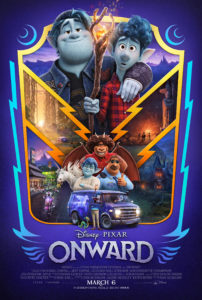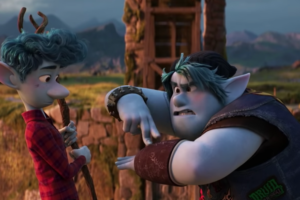 Since the first generation of young men in the digital age grew up and started becoming parents, dad culture has been on a significant upswing. Helped along by the proliferation of social media by uniting the like-minded Xennial/Millennial generation, their cultural ephemera’s popularity grew with them. From the multi-billion-dollar Marvel and Star Wars franchises dominating box offices to the rise of gaming culture, being a dad isn’t the boring home projects and falling asleep on your recliner it once was–even though it’s still fun to fix stuff and then fall asleep before eight.
Since the first generation of young men in the digital age grew up and started becoming parents, dad culture has been on a significant upswing. Helped along by the proliferation of social media by uniting the like-minded Xennial/Millennial generation, their cultural ephemera’s popularity grew with them. From the multi-billion-dollar Marvel and Star Wars franchises dominating box offices to the rise of gaming culture, being a dad isn’t the boring home projects and falling asleep on your recliner it once was–even though it’s still fun to fix stuff and then fall asleep before eight.
One of the more surprising and niche interests arising out of this cultural development is the fantasy genre including Lord of the Rings and Dungeons & Dragons. The former is certainly of greater popularity thanks to Peter Jackson, but the latter has achieved enough esteem to boast podcasts devoted to it and have TV shows like Stranger Things and Big Bang Theory reference it frequently. Disney/Pixar’s Onward combines these celebrated areas of dad culture with a meaty premise of fatherhood to drive home who can show and what it means to be a dad.
Taking place in a modern-day equivalent fantasy world of elves, centaurs, and pixies, teenage elf Ian Lightfoot (Tom Holland) is gifted a special present from his deceased father on his sixteenth birthday. His mother, Laurel (Julia Louis-Dreyfus), was instructed by her late husband, who died before Ian was born, to give the gift to him and their oldest son, Barley (Chris Pratt), when both of them were both at least sixteen. What they are gifted sends them on an epic quest to see their father and recapture some of the magic they have been longing for since he left their lives.
The major surprise of the brothers’ journey is Ian’s revelation after their quest goes seemingly bust and back to square one. Ian’s list of things he wants to do with his father is, in his mind, null and void, and he takes out his frustration on Barley, whose reputation as a screw-up and disappointment evidently led their quest to failure. It is only as Ian sits with the half-magically returned torso of his dad and watches the sun go down, he realizes the list he made was fulfilled, but it wasn’t with his dad, it was with his older brother. He understands the father he always imagined has already been with him throughout his whole life. Barley inspires wonder, instills passion, cultivates discipline, encourages him to step out in faith, and eventually releases him to fully realize his potential.
Ian’s life and realization are inspired by director Dan Scanlon and his older brother Bill; their father died when Dan was one-year-old. But what many critics and viewers view as a heartwarming, based-on-real-life story about finding your true self and brotherly love accommodates a far-deeper message of who can exemplify fatherly love. Admittedly, Onward is about brotherly love; Scanlon is upfront about Ian and Barley’s story as a reflection of his own relationship with his older brother. However, for Ian, he sees fatherly love epitomized in the passionate and optimistic Barley. For anyone with an older brother, Barley’s confidence in Ian shows how the absence of a biological father does not mean an absence of a dad.
Yet the movie also displays fatherly love through their mother, Laurel. Throughout the duration of her sons’ journey, Laurel pursues her sons, not taking umbrage with the peril they have put themselves in, but out of a commitment to see their quest bear fruit and avoid disaster from an unbeknownst to them curse. She demonstrates a fatherly love through her tender and ferocious commitment to her boys and their potential, as well as through her ardent pursuit for their well-being and success. In fact, this is also modeled by her boyfriend, Officer Colt Bronco (Mel Rodriguez), someone the boys express their dislike of at the beginning of the movie, and ends up resolving in a sweet example of how a step-father can likewise model fatherly love despite not being tied by biology.
This moment with Colt Bronco is given only a passing moment, but it ties the movie to its greater message of anyone can model fatherly love. For me personally, Colt’s pursuit of the boys combined with Barley’s brotherly love strikes a deep chord. My dad is not my biological dad. He is technically my stepfather since he adopted me at birth and married my mother shortly afterward. However, I never viewed him this way. It became clear in the twilight of my unruly teenage years and I hadn’t been disowned, he was the only father I had and will ever know. While I may never know my real biological father, I had a real father all along who loved me as his own. Despite Disney having excellent movies about fathers–The Lion King, Finding Nemo, and The Incredibles are top of the list–the notion of adoptive fatherly love is at its most concise and relevant in Onward.

Not only is this love illustrated through the characters of the movie, but the essential elements of loving like a father are also displayed, most notably in Barley’s relationship with Ian, as mentioned a couple of paragraphs ago. He is convinced of the magic and inspires wonder in the world around him. He instills passion, or as he would call it “heart’s fire” in Ian. Likewise, he cultivates discipline as Ian becomes more comfortable with his magical ability. Lastly, in the great “invisible bridge” scene, he encourages Ian to step out in faith and then eventually allows him to realize his full potential and do it on his own without any help. It all culminates in Ian’s great moment of taking all that he has learned from Barley and turning the sliver from his dad’s magic scepter into his own scepter he brandishes to defeat the cursed dragon.
This who and how of fatherly love is not unlike the process of discipleship or spiritual formation. Most often, the influential spiritual “fathers” in our lives are not our own parents. It could be an aunt, a friend, a pastor, an elder, a Bible study leader, or someone else we admire and takes us under their wing. In the same way, they inspire awe and wonder of God in us, instill a passion and love for Christ, cultivate spiritual disciplines, help us to step out in faith and trust the Spirit, and send us out into the world to do likewise with others. It is a fatherly love fully realized and not unlike the brotherly love touted by Paul (Romans 12; 1 & 2 Peter; Hebrews 13).
Hebrews 13 puts the capstone on the movie’s message. In it, the author of Hebrews encourages believers to “let brotherly love continue,” and to “do good and share what [we] have,” as these are sacrifices pleasing to God. Sacrifice, ultimately, is what solidifies our good work of raising up and caring for those who are in our charge. Something of ourselves is given up when we “share what we have” and “do good” towards others. At the heart of sacrifice is a willingness to give up a part of ourselves; time, money, leisure, etc., to contribute to the thriving of someone else.
In a scene shortly before the climactic events of the movie, Barley exemplifies sacrifice to continue Ian’s quest for their father. When they are trapped at a dead end while being pursued by Officer Bronco and the police, they have to cause a rockslide to block the path from the pursuers. When Ian cannot perform the Level 7 lightning spell to cause the rockslide, Barley gives a part of himself. He puts his beloved van Guinevere in “O for Onward” and puts a rock on the gas pedal, sending it careening into the rocks and causing a rockslide blocking the path but destroying the van. It is a poignant moment of sacrifice illustrating what it means to show fatherly/brotherly/sacrificial love.
Onward to a Fatherly Love


